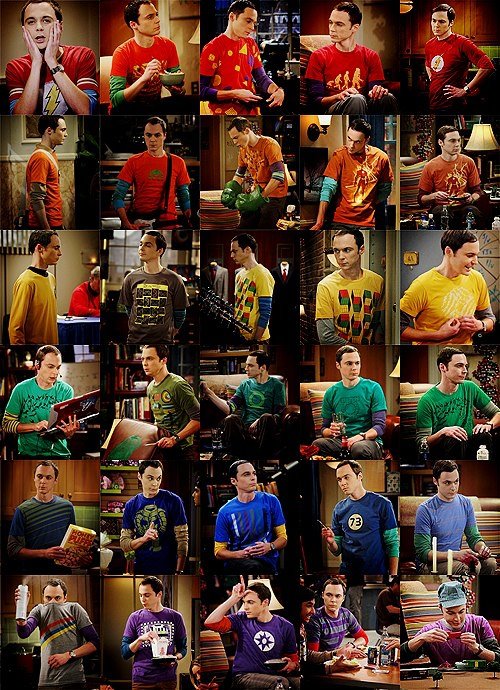
Sheldon Fashion
I love love love The Big Bang Theory (BBT). I love the intelligent science references, the highly-debatable geek-culture references, and the cameos only a nerd would enjoy. Most of all, the portrayal of idiosyncratic individuals who bare an incredible resemblance to people I’ve had to deal with for decades working in IT and hanging out at Cons and Comic shops.
So it comes as a shock to me that there is a lot of hate for BBT in geek culture. Many geeks seem to loathe the way the show portrays geek mannerisms, habits, and argue that the show invites normal people to laugh at geeks and encourages belittling them. The show is simply a televised extension of the bullying we had to endure in high school. Geeks see it as validating that abuse through the reactions of the “hot girl” Penny, who lives across the hall from the geeks and whose reactions to the geeks are a source of amusement for the audience.
I don’t see it, and I’m honestly offended at some of the opinions and parochialism being exhibited by some of my fellow geeks. Defending an opinion isn’t like defending a scientific position, I can’t cite journal papers and research to back it up, but I can use logic and anecdotal evidence. So here it goes…
My Nerd and Geek Cred
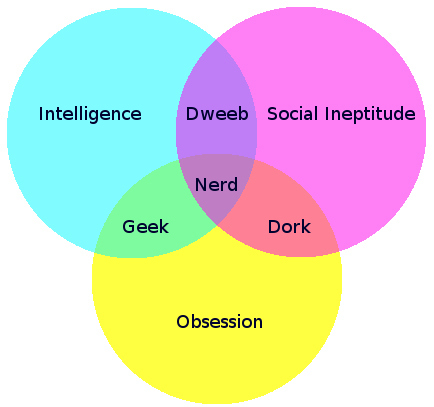
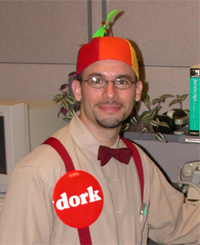
Before we get into the criticisms of the show, I need to take a moment to address my qualifications and my definitions of the terms “nerd” and “geek,” of which I consider myself both. But these tendencies, for myself and others, fall along a spectrum. It’s like we need a Kinsey homosexuality scale, but for individuals along the nerd-geek spectrum.
What’s the difference? To me, the term nerd refers to the intellectual, academic bent. Straight-A students, Ph.D candidates, engineers, scientists, computer programmers and other professionally-focused individuals rank high on their nerdiness. Geek refers to the gamers, comic-book readers, the Whovians, cosplayers, furries, LARPers, and other individuals obsessively interested in knowing all the trivia of a fictional mythos. The difference between nerd and geek is the difference between left and right brain, type A and B personalities, empirical and artsy, conservative and liberal. It’s the difference between CP Snow’s Two Cultures. Yeah, it’s a false dichotomy, but it’s a useful one.
I tend to straddle both worlds. On my nerd side, I’ve worked in Information Technology for 15 years, serving as Senior Software Developer at two organizations, into science and technology news, was fourth-chair on the high school chess club, and a member of Mensa through hard work and practice rather than natural talent. On my geek side, I grew up with Advanced Dungeons & Dragons (AD&D), Star Frontiers, Gamma World, and Vampire. I devoured books by Douglas Adams, Alan Dean Foster, Terry Brooks, and Arthur C. Clarke, turning to Isaac Asimov, William Gibson, David Brin, Greg Bear, and Vernor Vinge as an adult.
For years I volunteered at a comic and gaming shop. There I setup a computer lab for LAN tournaments, and, when that failed, I continued to volunteer at watching the shop because I enjoyed being there so much. I ran and judged Friday Night Magic (FNM) tournaments for years because the energy and enthusiasm of the players was so addictive. My geek side is pure fun and entertainment, but my nerd side is what I’m trying to do productively professionally with my life.
So these are my qualifications. Let’s move on to the problems many have with BBT.
Criticisms of BBT
These are the most common complaints I hear about BBT, and I’m going to work from the most valid to the most invalid to one complaint that is outright offensive and should be condemned every time it is brought up.
Unrealistic Characters
Okay. I’ll give you half credit for this one. Yes. The characters on the show are too nerdy to be that geeky. You can’t hold a job as published academic and have the time to play MMORPGs, obsess over movies, comics, cosplay, and hang out at comic shops all the time. As I mentioned above, when I’m geeking out, my nerdy starts to slip. I can’t maintain my ability to write elegant code and burn through video games, comics, and science fiction books at the same time. There’s gotta be a balance.
But the same criticism applies to Sex and the City, where the main character spends all her time on sex or drama or shoes or whatever the show is about, because I’m pretty damn sure it’s not about her writing, despite the fact that writing is what a writer does, because that would be boring. Or how the characters on the show Friends never seem to be at the fulltime jobs they would need to maintain their large New York apartments. At least BBT spends time showing the characters in their labs and offices. Sure they are supergeeks and supernerds for being able to hold down such demanding jobs and play D&D, MMORPGs, or enjoy Star Trek marathons, but we watch television to escape the mundane reality that we can’t do everything in life, but we can vicariously enjoy the BBT gang doing it all.
The Laugh Track
(The reason it’s not funny is because the comedic timing is altered. So these videos really don’t demonstrate anything, despite there being hundreds of them on the YouTubes.)
The show is filmed in front of a live audience. It’s not surprising that southern Californians, who I don’t stereotype as being very geeky, might laugh at inappropriate times or at the stereotype of geeks, but I could be wrong. They could be laughing for the same reason my wife and I like to see comedies in the theater on opening weekends, even stupid ones, because you pick up the energy of the crowd and even not-so-funny things quickly escalate to hilarity because you are in a room full of laughter. Yes, there’s something Pavlovian about it, and if it makes you feel superior to point that out, then that response demonstrates an addiction to feeling superior and that is Pavolovian as well. Bazinga. As UCLA physicist Dr. David Saltzberg explains from watching the process of taping the show, it’s very scientific:
First of all, they tape in front of a live audience and they make changes based on whether the comedy works or not—whether people laugh. So I like to see which cut they went with. That’s kind of an interesting thing. Comedy is an empirical science. You can have a lot of theories about whether something’s funny or not, but in the end either the audience laughs or they don’t. So you can test your theory very quickly—quicker than the theorists get to do.
So let’s acknowledge the live audience as a useful tool to get viewers at home energized and put it aside.
The Actors Aren’t Nerds
So I’ve seen the amusing but uninspiring BBT Panels at Comic-Con, and smiled when the audience booed Jim Parsons (Sheldon) for not knowing what a TARDIS is. In the special features interviews, Parsons admits he really has to work to memorize his lines because he has no idea what any of it means.
The only actor bringing academic credentials to the table is Mayim Bialik (Amy), who has a Ph.D. in Neuroscience, but who is also anti-vaccine, and that’s disturbing. I’m troubled with some of her anti-science positions, but then her offenses are fairly mild compared with Dr. Oz, who could be the Carl Sagan of medicine if we would stop promoting dangerous unproven alternative medicines. I truly wish people would learn to go to the journals for their science and learn to take a critical eye to the research methodologies used in the peer-reviewed papers, but inadequate educational standards and a lack of open-access makes this just a wishful thinking. That beings said, I haven’t seen any unscientific opinions make it into the show.
So let’s accept that actors are meatpuppets who get far far too much admiration for their jobs than they deserve and move on.
The Sexism
io9 got really offended and snarky over the fact that BBT was previewing an episode where the female characters venture into the Comic Shop:
…in this Thursday’s episode, the show may have gone too far as it presents the utterly ludicrous premise that a girl — several of them, in fact! — would willingly go into a comic book store! Silly girls! There are no clothes or make-up in there! Just boys, who are unable to function socially with members of the opposite sex, to the point that merely seeing females puts them into a catatonic stupor! Because they’re nerds! Ha ha!
Funny thing is, I’ve personally seen firsthand what happens in the comic shop when hot girls walk in. You should have seen the hush fall over the Saturday Yu-Gi-Oh! players, watched their jaws drop, and heard one exclamation of “Whoa!” when my future wife paid a visit to me in the shop one day. You should have seen the uncomfortable silence and shoe-staring that went on one FNM when a group of six hot girls on their way to the nightclub down the block came into our shop to interrogate me about what we were up to every Friday night. The shop owner used to joke that people thought the store was a sex shop, since he’d named it Duf’s Playhouse and there were “nothing but ugly guys hanging out there all day.”
So when Amy, Bernadette, and Penny walk into the comic shop on BBT and an uncomfortable hush falls over the geeks and they stop and stare, I laughed my ass off. But I totally understand why most geeks wouldn’t laugh. It’s not funny if you’re one of those stunned, lonely fellows and you have no humor about yourself (ie. 25% of the geeks at the shop). I didn’t date much in high school or college, but I’ve (almost) always been able to keep up a sense of humor about it.
This being said. Chuck Lorre, the show’s producer, is a misogynistic fratboy and I really have a hard time with the overt sexism in first few seasons of BBT–especially the Howard Wolowitz character. But the show evolved and grew more mature over the years. Howard became a sweetheart and, in one very touching episode, renounced his lecherous past and has abstained from crass jokes since. The show brought two very strong and intelligent female characters on permanently, and even started giving them their own storylines and side plots.
The show is actually much less sexist now in a lot of ways than actual nerd and geek culture, I’m sorry to say. When I was young, there were no, none, zero, zip, nada girls into comics and RPGs, but while I’m happy to say that’s changed with women getting into video games, anime, and even MtG, there is a lot of backlash from male geeks. Nowhere is this geek territorialism more appalling than in the idiot nerd girl meme:
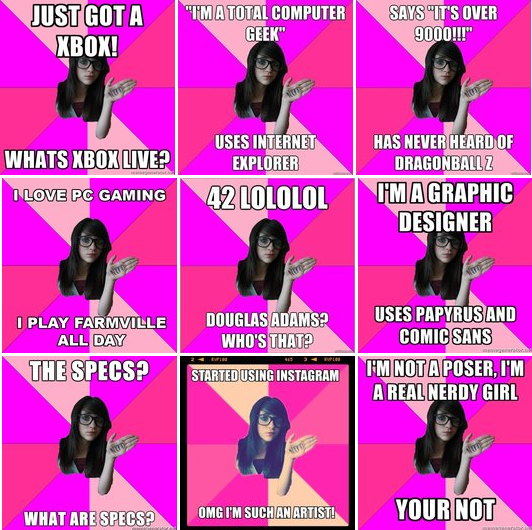
Idiot Nerd Girl
Not only is this meme offensive for the way it stereotypes and ostracizes, but the geeks making this stuff up are really putting their own ignorance on display with their tunnel-vision understanding of geek culture that reduces the vast world of geekdom down to their personal pet obsession (Dragonball-Z, WoW, X-Box Live). I don’t mind ignorance, and I love to share the history of science fiction memes and old-school anime with younger geeks, but the guys making up these offensively stupid images are the ones I have an uncontrollable need to publicly humiliate for their lack of depth.
Somma’s Rule of Knowledge: Public exclamations of shock at the ignorance of an individual concerning a piece of knowledge is actually a public display of personal ignorance of the vastness of human knowledge. So if you think less of someone for not getting your Whovian, Trekkie, WoW, Star Wars, LotR, Mass Effect, Starcraft, Dragonball, Walking Dead, Game of Thrones, Foundation, X-men, Batman, Hulk, Hellboy, D&D, Wheel of Time, Pathfinder, Hitchhiker’s, Portal, Zelda, Warhammer, Vampire, Red vs Blue, Akira, Star Frontiers, MST3K, Stargate, Macross, Farscape, or other reference, then you have no comprehension of the vast scope of geek culture.
Q.E. to the mother-#$%&in’ D.!
HANG YOUR HEAD IN SHAME!!!
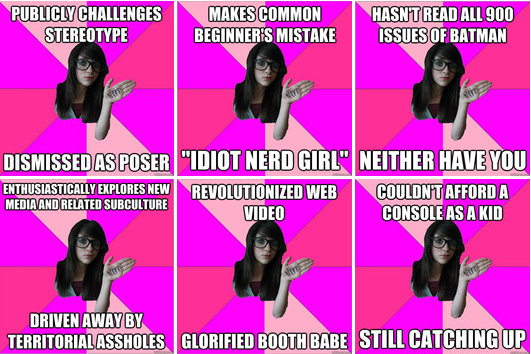
Idiot Nerd Girl Response
So kudos to BBT for letting girls into the clubhouse
Ridiculing Nerds/Geeks
Sam Lowry of Discover Magazine blog Science Not Fiction has a post lamenting the sad portrayal of scientists on BBT:
Three of the four main characters are scientists with limited romantic prospects. Howard lives with his mother and inhabits an imaginary world where his Beatles haircut makes him irresistible to women. Raj finds himself unable to speak when the nerds’ sexy neighbor is in the apartment. Sheldon apparently has a sitcom version of Asperger’s Syndrome.
He goes on to say these negative portrayals reinforce stereotypes of nerds that dissuade kids from going into the sciences. I’m sure this is true to a degree, and that’s unfortunate, but then I read the comments in response to the criticisms and I find lots and lots of scientists and engineers like myself who find the show hilarious and really appreciate the technobabble that the writers took the time to make comprehensible to the nerds watching the show.
I’ve also seen comments on several threads comparing BBT to Amos and Andy, in the way it stereotypes and demeans nerds and geeks. This is incredibly offensive to African Americans. Think about it. These people are equating the act of making fun of someone who’s quirky and occasionally bullied to making fun of someone who doesn’t have the right to vote or could be lynched for disrespecting the wrong person. Don’t ever compare the (very real) bullying of nerds and geeks to the total systematic oppression of a group of people based on their skin color.
BBT is to geeks what Good Times or Jeffersons was to African Americans, or Queer Eye for the Straight Guy for homosexuals, or Seinfeld for Jews. BBT makes geeks and nerds a little more accessible to the mainstream public. It’s a gateway show.
And geeks need that. We are fraking weird. I’m keenly familiar with the uncomfortable feeling of being cornered in a comic shop by a male 28-year-old Sailor Moon fanatic who insists on doing his impression of every single one of the Sailor shouts for me. I’ve spent entire days continually trying to politely excuse myself from a conversation where a MtG geek or Dragonball fan won’t stop talking about their interest despite the fact that I have no idea what they’re talking about and will even tell them so. I think it’s preferable for people to feel comfortable laughing at that than to react with fear, which some people do.

An example of such fear is a bookstore owner I was talking to about science fiction. She told me her son loved to collect Yu-Gi-Oh! cards. When I told her she should bring her son out to the weekly Saturday Yu-Gi-Oh! tournament, where he could meet other fans of the game and make some friends, she lamented that she would love to, “But there are some older men at that shop too. There’s something really creepy about a man in his sixties playing children’s games.”
I didn’t know how to respond at the time, but if I had it to do over, I would have told her that man is named Pat, and Pat hangs out in the shop all day because he is independently wealthy from working on the year-2000 bug and wants to spend his retirement playing all sorts of games. That’s because Pat is a gamer, and he’s one of the most brilliant people I’ve ever met in my life. Your son could learn a lot from hanging out with Pat, who does come across as a Monty Python flavor of insane, but that’s just his sense of humor and you learn to love it when you get used to it. The kids at the shop freakin’ love Pat, and Pat would fit in perfectly with the BBT gang.
In all fairness, if we are to take a critical eye to BBT’s portrayal of nerds and geeks, then we also need to look at how the show portrays “norms” like Leonard’s love-interest Penny. The show had a great time with one of her boyfriends, Zack, an attractive, well-meaning man, who is also a total airhead. The quartet of nerds made fun of him endlessly right to his face with jokes that went over his head (There’s also a great opening bit where the gang reflects lasers off mirrors placed on the Moon and Zack gets freaked out that science might destroy it (The Moon.)).
Then there’s Penny herself. A lot of people argue the show is making fun of nerds because we are supposed to identify with her character and share her reaction to their weirdness. This ignores the fact that Penny, while attractive, isn’t a role model. She’s ditzy, underemployed, promiscuous, drinks too much, and is superficial. If audience members who identify with her are laughing at me, then, when I watch Penny, I am laughing at them. Take this exchange as an example:
Penny: I’m a Sagittarius, which probably tells you way more than you need to know.
Sheldon: Yes, it tells us that you participate in the mass cultural delusion that the sun’s apparent position relative to arbitrarily defined constellations at the time of your birth somehow affects your personality.
Penny: Participate in the what?
Or consider Amy’s jab at Penny in comparing her to Leonard’s new girlfriend, “Granted, Penny, your secondary sexual characteristics are reasonably bodacious, but Priya is highly educated, she’s an accomplished professional, and she comes from the culture that literally wrote the book on neat ways to have sex. Whereas you on the other hand are a community college dropout who comes from the culture that wrote the book on tipping cows.”
Yeah. This is a show that helps stupid people laugh at nerds and geeks. <sarcasm>RIGHT.</sarcasm>
Making fun of “Special Needs” People
One of the most offensive criticisms of BBT is the disturbing number of people who claim that Sheldon is autistic and the show invites us to laugh at his illness:
The way that even the three guys laugh at Sheldon seems especially cruel. Yes, he’s painted as annoying, as an inconvenience and as just plain rude, however he is also read by many as autistic. So much so that my friend who works at a school for autistic children believed he had Asperger’s Syndrome and once asked me how they got away with ridiculing a character with special needs. I explained to her that no, Sheldon is not canonically autistic and she was shocked. She told me that he was a totally accurate portrayal of someone on the autistic spectrum and had many characteristics of someone with Asperger’s – specifically the inability to recognise sarcasm or understand human emotion as well as the obsession with “his spot” and his distress when routine is changed. Sheldon is consistently positioned as someone to be laughed at. It’s made to seem ok by the fact that his friends are laughing at him too and, of course, he isn’t technically autistic he’s just almost indistinguishable from someone who is.
If you think Sheldon is autistic, then you have never met an autistic person. We had an autistic kid who hung out at our shop on Saturdays. It was tough. He would bring boxes of toys in with him to pile up on one of the tables. The slightest thing could set him off into a screaming rage fit. His mom appreciated us because we didn’t think anything of it. What’s the difference between an autistic teenager throwing a temper tantrum over forgetting one of his toys and a geek teenager throwing a temper tantrum over his 8th level dwarven barbarian getting killed in a fictional barfight? (Yes, that actually happened one night.)
That last comparison bit is a joke, but autism is not a laughing matter. When you argue that Sheldon is a “totally accurate portrayal of someone on the autistic spectrum,” then you have broadened the definition of autism to the point where you have rendered the word meaningless. That seriously offends me. It offends me on behalf of the mothers and fathers who are living with autistic children who are now adults and still require constant supervision, are still in diapers, or still have violent humiliating outbursts in public. Go listen to this account of the daily trials of two parents living with an autistic child, and you’ll understand how ignorant and disrespectful it is to compare the quirky physicist on a sitcom to someone with a seriously debilitating mental illness that consumes the lives of those caring for them.
While he does not have autism, Sheldon certainly does seem to have a mild/more-than-mild case of Obsessive Compulsive Disorder (OCD), urging him to seek out the seat in the movie theater with optimal acoustics, secure a favorite seat in the apartment, perform actions in threes, agonize over keeping his comic book collection pristine, submit Leonard to an extensive legalistic roommate contract, or maintain a “five napkin system” at lunch. I don’t know if making fun of people with OCD is okay, but the TV show Monk, Howard Stern, and films like As Good as It Gets have been doing so for years.
But people claiming Sheldon qualifies for any Diagnostic and Statistical Manual illness are missing the most important criteria for diagnosing a mental disorder: Is the individual suffering? Sheldon is not suffering. He is proud. He is genuinely superior to those around him and has no problems pointing it out. I’ve got 15 years working in Information Technology; I’ve met plenty of fully-functional, perfectly happy and incredibly irritating OCD people over the years. So I’m not laughing at Sheldon, I’m laughing with the characters who have to deal with him because I’ve been there.
Why I Love BBT
The Intro
My 18-month-old son loves this intro, and so do I. There’s just so much going on, it takes many viewings to appreciate it. I’m not a Bare Naked Ladies fan, but this song is awesome (TMBG would be better though, sorry):
The Science References and Cameos
A search for scientific inaccuracies in BBT turned up this single example:
I was re-watching Big Bang and noticed that on Season 3, Episode 3, The Gothowitz Deviation, they completely screwed up their reference to and use of operant conditioning. The core tools of operant conditioning, are either positive (delivered following a response), or negative (withdrawn following a response). In Big Bang theory they use the popular forms of “positive” and “negative,” as in, it’s a “positive” experience to get yummy chocolate and a “negative” experience to be electrocuted, however by the rules of operant conditioning both of these things would be positive because they add stimulus following a behavior.
True. BBT got that wrong, but thanks to Dr. Saltzberg, the show gets much much more right. Schrodinger’s Cat, Isaac Newton, Richard Feynman, Occam’s Razor, Sheldon getting caught in an infinite loop of his own algorithm, the list of accurate science references that provide an additional level of humor for those in the know or those willing to hit Wikipedia to get in the know goes on and on.
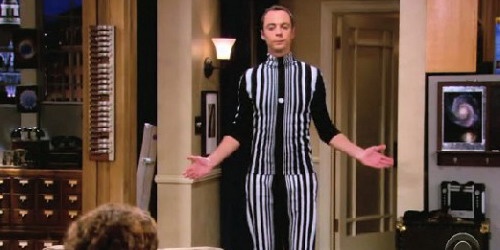
Sheldon’s “Doppler Effect” costume.
Then there’s the cameos. Niel DeGrasse Tyson, Stephen Hawking, Ira Flatow, and many other big names in science popularization appear on the show, humanizing science in the process. This scene making fun of popular science author Brian Greene is hilarious, puts a human face on quantum physics, and provides in-jokes for those of use immersed in science culture:
Another example is Sheldon’s comment to Nobel laureate George Smoot when arguing over whose name should take precedence on a research work, “You won the Nobel prize, what, three years ago? So you must deal with a whole lot of “what has Smoot done lately?” My thought is we continue my research as team, you know, Cooper-Smoot, alphabetical. When we win the Nobel Prize, you’ll be back on top.”
The Jokes
Here are more concrete examples of what I keep talking about. These are funny jokes, but they are only funny if you understand enough of the technobabble to get the joke:
Accurate Technobabble: “Yes! Well, I’m polarized tree sap and you’re inorganic adhesive, so whatever verbal projectile you launch in my direction it’s reflected off of me, returns on its original trajectory and adheres to you.”
Leonard remarks that a Tequila Sunrise is a “wonderful example of how liquids with different specific gravities interact in a cylindrical container.”
On Star Trek transporters: “Assuming a device could be invented, which would identify the quantum state of matter of an individual in one location and transmit that pattern to a distant location for reassembly. You would not have actually transported the individual, you would have destroyed him in one location and recreated him in another.”
Wolowitz: Have you tried rebooting him?
Leonard: No, I think it’s a firmware problem.
Evolutionary adaptation: “If influenza was only contagious after symptoms appear, it would have died out thousands of years ago. Somewhere between tool using and cave painting, Homo habilis would have figured out to kill the guy with the runny nose.”
“We have to take in nourishment, expel waste, and inhale enough oxygen to keep our cells from dying. Everything else is optional.”
In response to the question, “why is this letter in the trash?”: “Well, there’s always the possibility that a trash can spontaneously formed around the letter, but Occam’s Razor would suggest that someone threw it out.”
“I trusted you with my e-mail address, and you betrayed that trust by sending me Internet banality.”
Sheldon: It’s a bust of Sir Isaac Newton.
Penny: Oh sure, sure. Very Christmasy.
Sheldon: Well, excuse me, it’s much more Christmasy than anything you put on the tree.
Leonard: Here we go…
Sheldon: December 25th, 1642. Julian calendar. Sir Issac Newton is born. Jesus, however, was actually born in the summer. His birthday was moved to coincide with the traditional pagan holiday that celebrates the winter solstice with lit fires and slaughtered guts, which frankly sounds like more fun than twelve hours of Church with my mother, followed by fruit cake.
That reminds me, BBT is the only show on television that I’m aware of having an unabashed atheist as its most popular character. That’s awesome too.
The Pain of Being a Geek
If there is one complaint I have about BBT, is that it does make light of the fact that oftentimes it’s really painfully lonely to be a geek. Being a Geek means being ostracized, demeaned, and bullied, and it’s very difficult to let that go. “Geeks have scars.” as one commenter succinctly noted.
It seems to me that a lot of the resentment toward BBT and the new wave of nerd-girls stems from this pain. It’s not fair, many geeks reason, that people are being let into the club without paying their dues. Like Hipsters with their “I was into X before X was cool.” There’s a division between the geeks who grew up playing pencil and paper RPGs, programming C64s, BBSing, and put together model space ships, versus the new wave of geeks into the highly-commercialized anime, superhero movies, and video games with a very low entry bar to indulgence. I can understand the anger at our former bullies suddenly wanting to be geeks. People who are into “Watching movies based on comics instead of reading the comics,” as one commenter put it.
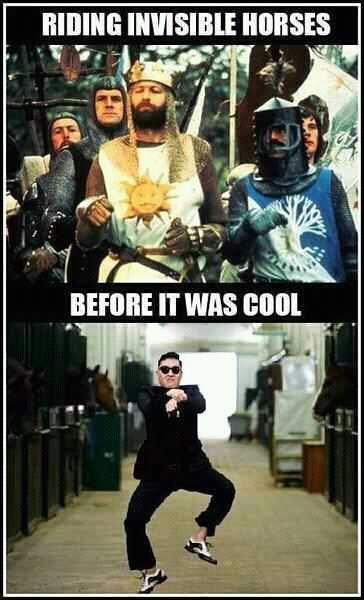
Today there are so many subcultures of geek, we are all geeks in relation to other geeks. I respect Dr. Who, but I don’t have the time to watch it. I’ve recently become obsessed with the science fiction worlds of Mass Effect, but that’s geekery I must keep to myself. Fantasy-dorks are geeks to me because science fiction is sooooo much more rewarding. I’m fairly over superhero comics, so there are some more geeks to me, but I love a select few independent, limited-run stories. In the end, however, I respect all of my fellow geeks, even if I don’t share their particular sub-genre interests.
I admit, I hold a bit of envy for the kids who get to watch the mainstream anime on “Toonami,” and even share their enjoyment of those cartoons in conversations with girls at school, while the only way I could get anime growing up was through an underground network of grainy, untranslated VHS bootlegs. I remember observing in my 30s that my sister’s high school friends were into anime and comic books, thinking, How times have changed, and wishing I could have grown up at time when I could share my geeky interests with attractive girls–but then, maybe my personality would have driven me away from anime as too mainstream, and pushed me into the new Maker culture, tinkering with arduinos, or something equally esoteric.

My wife Vicky as Rogue after letting her gray grow out.
I’m very familiar with the uncomfortable furrowed-brow a woman would give me when I accidentally slipped from cool, mature Ryan who works out at the gym into excited, animated Star Trek fanboy Ryan. I lucked out and found a nerdy woman who loves me and is very enthusiastic about watching Star Trek, checking out the latest special-effects scifi movie in the theaters, or reading the occasional gem of a science fiction novel I get excited about. Introverts get their energy from ideas and not people, where the dating scene is all about people getting energy from people. Geeks are about ideas, so it’s very hard for them to find love.
BBT acknowledges that loneliness and pain, but maybe its offense is that it doesn’t take it seriously enough–and I don’t know how it could approach the subject seriously. The nerds get bullied, but I’m not laughing with the bully, I’m laughing sympathetically with the nerds because I’ve been there. The nerds are awkward with women, but I’m not laughing at their loneliness, again I’m laughing with the sympathy of someone who’s been there–and as someone who knows that it gets better.
It really does, and maybe that’s how BBT appropriately handles the very real downsides of being a nerd or geek, by showing how nerds and geeks are ultimately superior to the norms. Laugh at Sheldon all you want, his character is rolling in cash he doesn’t even need. Go ahead and laugh at Howard, but his character got to look down on you from the ISS. Laugh at all of them, but they are traveling the world and living life to the fullest. BBT portrays the fact that the nerds seriously begin to outpace the norms at the game of life the older we get. Beauty fades, popularity becomes trivial, the life of a “norm” is often one of stasis, but intellectual pursuits only become more rewarding as we grow older. BBT celebrates that, and I think that’s a good thing.
Update: This post kicked off a lively debate over at HackerNews.
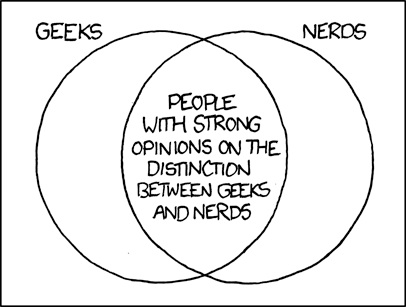
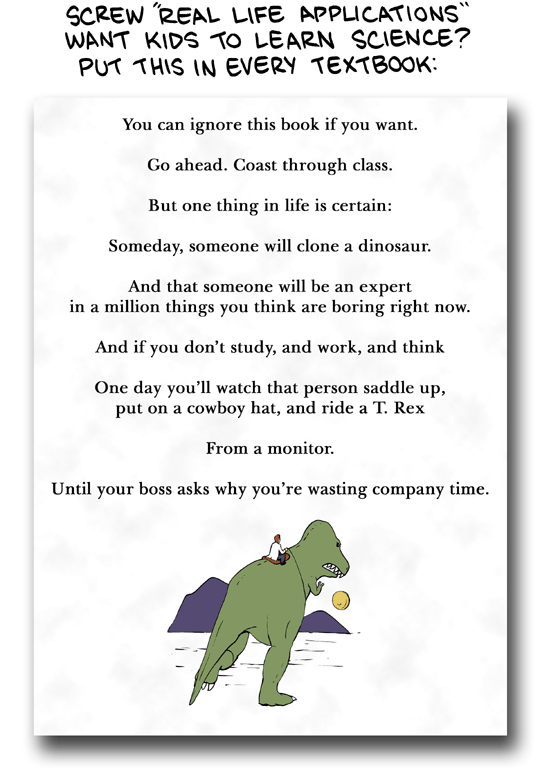
Comments
11 responses to “In Defense of “The Big Bang Theory””